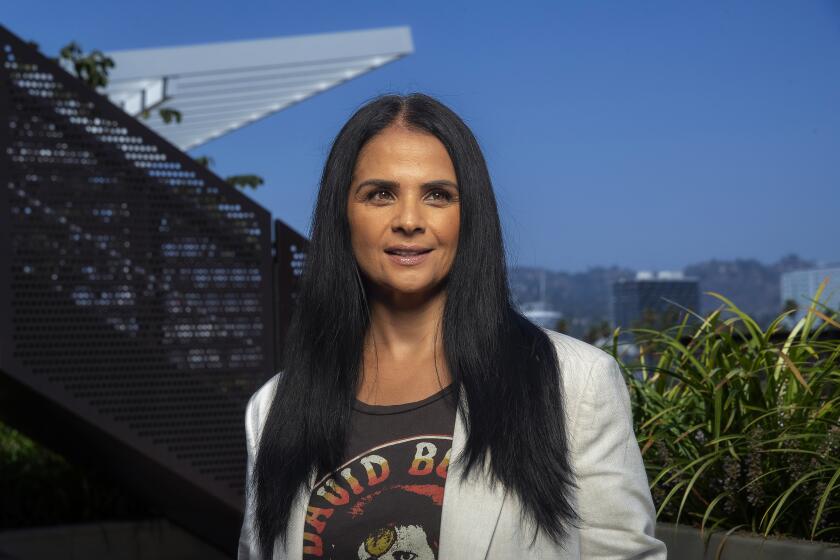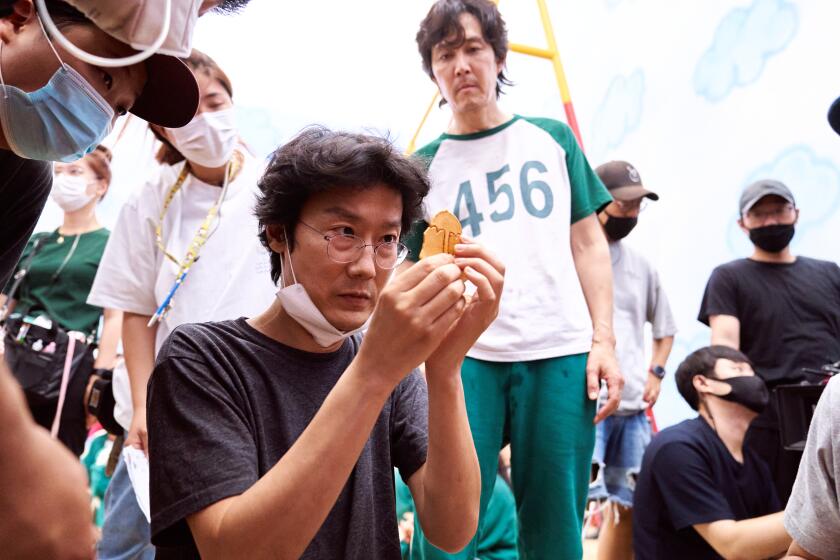Netflix’s next acquisition: A Vancouver VFX studio

Netflix on Monday said it will acquire visual effects company Scanline VFX as it ramps up its production in Europe and Asia.
Financial terms of the deal were not disclosed. The transaction, which is expected to close in the first quarter, marks the streaming giant’s foray into the visual effects industry.
“Netflix will invest in Scanline’s pipeline, infrastructure and workforce and continue to support the pioneering work that Scanline’s Eyeline Studios is doing in virtual production to push the boundaries of what is visibly possible,” wrote Amy Reinhard, vice president of Netflix’s studio operations, in a blog post.
Scanline has worked on Netflix programs including “Cowboy Bebop,” a John Cho-starring live-action version of the beloved Japanese anime series, the third and fourth seasons of popular sci-fi series “Stranger Things” and upcoming comedy movie “Don’t Look Up.”
Scanline has more than 1,000 employees and is based in Vancouver, Canada, which remains a major hub for film and TV production thanks in part to generous film tax credits that have made it attractive to Hollywood companies.
In addition to Vancouver, Scanline has offices in Montreal, Los Angeles, London, Seoul, and German cities Munich and Stuttgart.
Netflix’s Global Head of TV, Bela Bajaria, discusses the company’s programming strategy and why foreign-language shows are taking off on the platform.
The company, founded in 1989, has also worked non-Netflix projects including HBO fantasy series “Game of Thrones” and movies including action flick “Godzilla vs. King Kong” and Marvel movie “Shang-Chi and the Legend of the Ten Rings.”
Scanline on its website said it’s “noted for its creation of natural phenomena such as fire, smoke and water on disaster epics.” The company’s fluid effects software, Flowline, won a scientific and technical achievement Academy Award in 2008.
After the acquisition, Scanline will continue to “operate as a standalone business and work with a variety of clients,” Reinhard wrote. Netflix will “continue to rely on many other studios around the world for our VFX needs,” Reinhard added.
The Scanline deal is one of several recent acquisitions by Netflix as it looks to expand and diversify its global business.
The Los Gatos, Calif., streamer in September said it will purchase the Roald Dahl Story Co. (which included its portfolio of intellectual property for children’s stories like “The BFG”). That same month, Netflix also said it acquired Glendale game developer Night School Studio.
Netflix rolls out a weekly report on how shows and films are faring on the streaming service by hours viewed.
Netflix in recent years has grown its production presence outside of the U.S.
Since 2017, Netflix has spent more than $1.97 billion on productions in Canada, according to a post written by Netflix’s Chief Content Officer and co-CEO Ted Sarandos on Netflix’s website in February. Netflix also earlier this year announced plans to open an office in Toronto.
“Canada is an amazingly diverse country and growing our presence locally will help us share more authentically Canadian stories with the world, whether through the development of original content or through co-production and licensing opportunities,” Sarandos wrote.
As it faces more competition from rival services like Disney+ and HBO Max, Netflix has invested in growing its library of non-English language programs, shows featuring talent from underrepresented communities and programs that would resonate with audiences worldwide.
For example, Netflix‘s Korean-language show “Squid Game” is the most watched TV series on the streaming service, racking up 1.6 billion hours in viewing time in its first 28 days.
More to Read
Inside the business of entertainment
The Wide Shot brings you news, analysis and insights on everything from streaming wars to production — and what it all means for the future.
You may occasionally receive promotional content from the Los Angeles Times.













